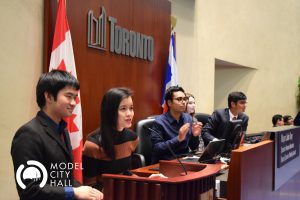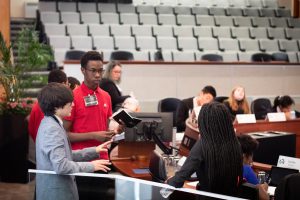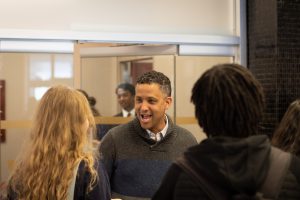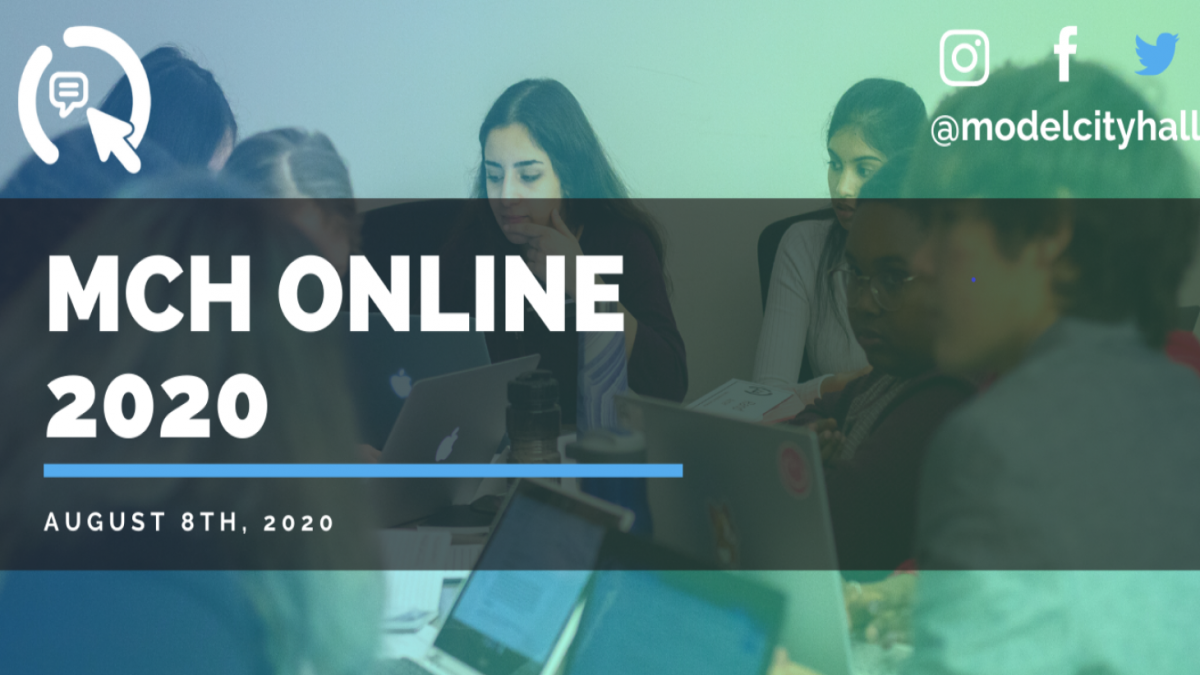In high school, a small group of friends and I started a free mock Toronto City Hall conference for high schoolers in 2015, with the goal to improve youth civic and political engagement. With the support of a local city councillor, we created a website for our conference, booked Metro Hall (sadly, City Hall was unavailable), and planned our committees.
We wanted to make politics, particularly municipal politics, accessible, engaging, and rewarding to high school students. At our Model City Hall conference, students would assume the role of a councillor for the day and simulate committees that are part of Toronto City Council. Within those committees, they would debate, discuss, and pass motions to address key issues that Toronto is facing, in a manner akin to that of the councillors who represent them.
My role in the planning process was to ensure a decent turnout. To promote our registration link, I turned to social media channels, creating a Facebook event page and direct-messaging students from across the GTA. Through our promotion, we were able to recruit 70 students to Metro Hall for a fun day of city hall debate on a bright May Saturday morning!

A year later, we held the event at Toronto City Hall. Over 100 students came out. Then we did it again the following year. With this momentum, we incorporated Model City Hall as a federally registered Canadian non-profit. Our conference has grown over the years. News outlets featured it. Prominent politicians attended. Model City Hall became the first conference in Canada to simulate municipal politics for youth at no cost!

In 2017, I started my undergrad at McMaster University and began to adjust to my new routine. Only three weeks into the fall semester, however, I got an email from a local high school student who had an interest in bringing our conference to Hamilton. We recruited a team of student volunteers, booked Hamilton City Hall, partnered with a city councillor, and fine-tuned the details. The result was a successful first event in Hamilton in 2018.
The following year, we partnered with the Department of Political Science at McMaster University. A few months ago, we hosted an exciting and well-attended conference in collaboration with them. Our upcoming project: an undergrad political science course built around enabling undergraduate students to organize the conference for local high schoolers. A few months ago, we found out that we secured a grant for the course. The momentum was fantastic.

But then COVID-19 hit. With the pandemic, this project has been put on hold, and many ideas have taken a backseat. Organizing the conference for five years now has been deeply rewarding for me, and one of the key and unique draws of the Model City Hall conference is that it takes place at city hall. The location gives our youth delegates the chance to play the role of a city councillor, sharpen their leadership and public speaking skills, and learn about the political process from a hands-on and tangible approach.
Our events also connect youth with policymakers. At the conference, we invite city councillors, community builders, politicians, and other decision-makers to engage directly with youth, thus creating a valuable dialogue. The participants examine a selection of current policy issues, collaborate to pass resolutions, and discuss these issues with city staff, civic leaders, and stakeholders.

The pandemic has presented explicit challenges for our in-person conference. But is has also created an opportunity for us to reflect on our scope, capacity, and vision. Zoom has been a gamechanger. Since May, my friends from back in high school and I have reconnected and started organizing a virtual event scheduled for August 8th, 2020.
The online format has provided our non-profit with a cool opportunity to widen our reach and invite policymakers, field experts, and community leaders to share, sit in, and listen to student voices. For this event, we hope to provide youth across Ontario with a forum to have their voices heard on critical and timely topics.

Our virtual event will feature three committees: COVID-19, STEAM, and Human Rights. Students will discuss issues such as mental health during the pandemic, racial injustice, and the governance of Artificial Intelligence. Our guest speakers will include policymakers, public health experts, and community leaders.
Another valuable thing about our conference is that it is free. Many of the students who have attended our in-person conferences were not previously able to access and attend costly Model United Nations and debate tournaments. Our conference not only gave students an opportunity to participate in city hall debate, but also provided them with a toolkit of resources—knowledge about the decisions made in city hall, transferable public speaking skills, and connections with leaders and like-minded youth—that they were able to bring back to their own communities, inspiring more youth to get involved and improve their civic and political engagement.
Our virtual conference may not be able to foster the same level of democratic participation and provide the same level of ‘social capital’ (how scholar Robert Putnam refers to our social connections in Bowling Alone, his book about civic engagement). But our team will be working hard to plan dynamic and interactive ways to energize youth and demystify the political process over Zoom.
Registration for our online conference is now open, and both high school and post-secondary students are encouraged to sign up! The page can be found at this link https://bit.ly/MCHOnline2020 and students can learn more about us at modelcityhall.org.

